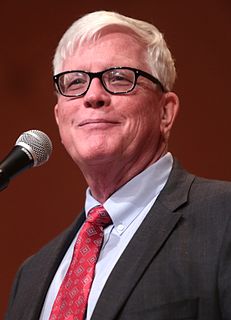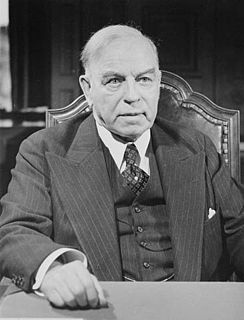A Quote by Mark Twain
I always did hate for anyone to know what my plans or hopes or prospects were?for, if I kept people in ignorance in these matters, no one could be disappointed but myself, if they were not realized.
Related Quotes
Donald Trump actually won a lot of people. We've got to give the president-elect his due. He was a tractor beam for the disappointed. He said to the people who were disappointed with the president on Obamacare, "Come to me." He said to the people who were disappointed with trade, "Come to me." He said to the people who were disappointed with the Supreme Court, "Come to me." And he did run a campaign of bringing in the disappointed. And to the people who may be disappointed with their own lives and where they are. And they have a person to speak for them.
When I had finished the book I knew that no matter what Scott did, nor how he behaved, I must know it was like a sickness and be of any help I could to him and try to be a good friend. He had many good, good friends, more than anyone I knew. But I enlisted as one more, whether I could be of any use to him or not. If he could write a book as fine as The Great Gatsby I was sure that he could write an even better one. I did not know Zelda yet, and so I did not know the terrible odds that were against him. But we were to find them out soon enough.
Basically, I realized I was living in that awful stage of life between twenty-six to and thirty-seven known as stupidity. It's when you don't know anything, not even as much as you did when you were younger, and you don't even have a philosophy about all the things you don't know, the way you did when you were twenty or would again when you were thirty-eight.
The biggest reason was that when I started deejaying, I'd said that the other DJs in Japan were like salaried employees who I really didn't want to emulate because they didn't even know the titles of the songs they were playing - just that they were playing a hot track or whatever - which I didn't appreciate at all. I realized that I had become just like the kind of DJ that I used to hate, with no knowledge, so I decided that I needed to be honest with myself and quit.
Two things were falling apart, my personal life, my professional life. And I realized that all those things were supposed to make me happy, but nothing could fill me up except myself. So I went into analysis. I went to see a doctor, to talk about my lack of self-esteem. I don't know how to say it better: my lack of self-esteem, my insecurity, and how these things were not going to fill me up. And I'd better fix myself and then find out what I liked. For me, therapy was the greatest gift I could ever give myself. There's nothing I could have done for myself that would've been better.
This show [Jessica Jones] was exploring the aftermath, and that is unique. You're sitting there going, "I know what happens. This is the aftermath." You watch her daily life and how she dealt with people, like new prospects for love or friends that were close to her, but she didn't know if she could trust them or if they were enemies.
Did you know that Nuremberg courtroom was designed so that the Allies could project movies during the trial? And, also so that they could film the trial? The first movies that were shown were prepared by John Ford - a compilation of material from the liberation of Bergen-Belsen and Dachau. But here comes an interesting part. Did you know they lit (using fluorescent tubes) the defendants so they could be filmed watching the films that were shown during the trial?
I believed the people had a true instinct in most matters of government when left alone. That they were not swayed, as specially favoured individuals were, by personal interest, but rather by a sense of what best served the common good. That they recognized the truth when it was put before them, and that a leader can guide so long as he kept to the right lines. I did not think it was a mark of leadership to try to make the people do what one wanted them to do.
Early evening traffic was beginning to clog the avenue with cars. The sun slanted down behind him. Harry glanced at the drivers of the cars. They seemed unhappy. The world was unhappy. People were in the dark. People were terrified and disappointed. People were caught in traps. People were defensive and frantic. They felt as if their lives were being wasted. And they were right.
It had long been true, and prisoners knew this better than anyone, that the poorer you were the more likely you were to end up in jail. This was not just because the poor committed more crimes. In fact, they did. The rich did not have to commit crimes to get what they wanted; the laws were on their side. But when the rich did commit crimes, they often were not prosecuted, and if they were they could get out on bail, hire clever lawyers, get better treatment from judges. Somehow, the jails ended up full of poor black people.






































